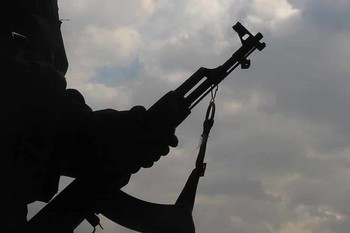UN expert urged to address ongoing extrajudicial executions in Sudan

File photo
LONDON / KHARTOUM –
The Sudan Human Rights Monitor, the UK-based human rights advocacy group REDRESS*, and the SOAS Centre for Human Rights Law have written to the UN Special Rapporteur on Extrajudicial, Summary or Arbitrary Executions, urging him to intervene in Sudan in relation to the ongoing use of lethal force against protestors.
The submission draws from previous research carried out for a joint briefing paper – Your Life Isn’t Worth the Price of a Bullet – which highlights a concerted and systematic campaign to crush peaceful opposition by using excessive and lethal force against demonstrators.
The submission details the cases of five demonstrators who were killed by Sudanese security forces during the ongoing protests against the 2021 military coup, including a young woman nurse killed by a bullet to the head, a young man killed by a bullet to the chest, and a young man whose spinal cord was severed by a tear gas canister deployed at close range.
Since the military coup on 25 October 2021, protesters across Sudan have frequently taken to the streets to call for a fully civilian government. Police and security forces have consistently responded by firing live ammunition into the crowds, deploying tear gas canisters at close range, and beating demonstrators with batons.
At least 124 protestors have been killed by security forces since the coup, and more than 5,000 protestors have been injured. Hundreds of protestors have been arrested and detained, often without charge or trial. This includes eight individuals (on behalf of whom REDRESS and others appealed to UN experts to intervene) who are currently being prosecuted without due process for crimes which carry the death penalty.
In their submission, the Sudan Human Rights Monitor, REDRESS, and the SOAS Centre for Human Rights Law call on the Special Rapporteur to:
- obtain information from the Government of Sudan about the steps it has taken to investigate extrajudicial killings since the 25 October 2021 military coup;
- request that the Government of Sudan provide adequate, effective, and prompt reparation to the families of victims of extrajudicial executions in Sudan;
- request and undertake an official country visit to Sudan to investigate the practice of extrajudicial executions; and
- encourage the UN Human Rights Council to establish an International Commission of Inquiry or other investigative mechanism to investigate allegations of human rights violations in Sudan.
The letter also asks the Special Rapporteur to call on the Government of Sudan to:
- immediately end the deployment of unnecessary and disproportionate force against peaceful protestors, including by issuing directives to the riot police, Central Reserve Police, and other security forces regarding the use of force in accordance with international standards;
- ensure all law enforcement and security personnel wear identifiable uniforms;
- conduct a thorough review of police control protocols, practices, and equipment, and publish available codes of conduct specific to all security forces;
- initiate a comprehensive security sector reform process;
- establish an independent investigation committee to undertake a prompt and independent investigation into all human rights violations perpetrated since the 25 October 2021 military coup; and
- publicly commit to the protection of human rights, particularly the rights to freedom of association, expression, and assembly.
Disclaimer: The views and opinions expressed in this article are those of the contributing authors/organisations and do not necessarily reflect the position of Radio Dabanga.
*Republished by courtesy REDRESS, an NGO that operates from London and The Hague, which pursues legal claims on behalf of survivors of torture to obtain justice and reparation for the violation of their human rights. The NGO empowers survivors to access justice through human rights cases against governments, civil cases against individuals, and criminal cases where they advocate for law enforcement bodies to prosecute perpetrators under the principle of universal jurisdiction.











 and then
and then